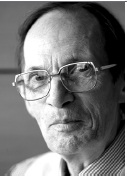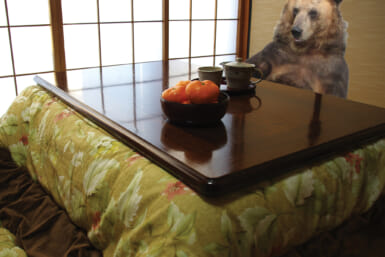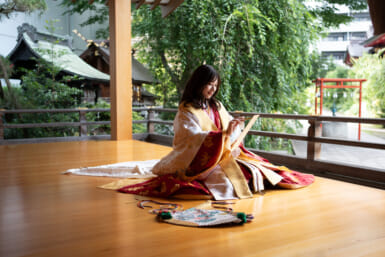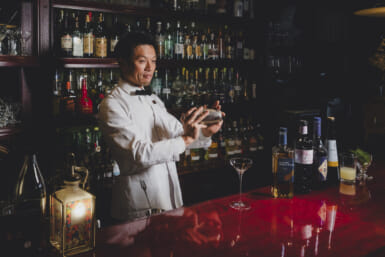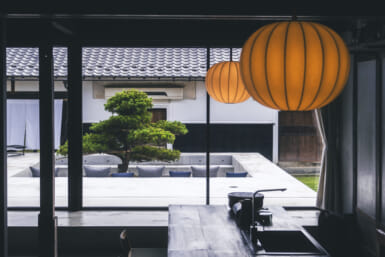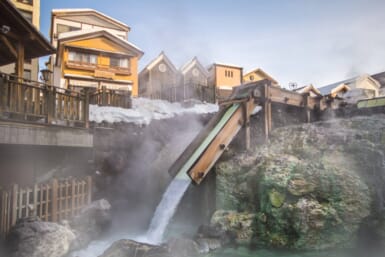I have just been through an experience that I would like to share with you. Just a few days ago I checked into a hospital outside Tokyo for a hernia operation. I am 62 and, at my age, it can happen that your lower bulwarks give way. So you get ’em fixed.
I was in the midst of writing something at the time I was due to go in. I honestly gave little thought to what lay ahead. Short-sighted Scott-Stokes. About the time I was being wheeled off on a stretcher into the operating theater, it suddenly occurred to me that I had no control whatsoever. A feeling of helplessness engulfed me and I went into a deep anaesthetic-induced doze…
The next day I was encouraged to go home. But first I must pay the bill. I walked rather slowly, in considerable heat, to a cash point at a nearby Ito-Yokado that I had tested in advance with my bank card. After 50 yards, sweat ran down my back. My stomach hurt. I clutched it for dear life, fearing that my intestines might pour out onto the ground.
God! The Japanese are hardy specimens, I thought.
Imagine letting patients out into the fresh air after one day, having just cut a whacking great hole into their stomachs.
I got to the cash point, retrieved my money and headed back to the hospital, slowly. It was like taking the last few steps up the ridge on Everest. Only I was walking on the flat, surrounded by verdant avenues, passing an ugly building, labelled as a performing arts center. Performing arts, my goodness gracious me, I was putting on a performance myself.
There should be a plaque on the street: “this is where Henry Scott-Stokes made a 200-yard march in sub-tropical August heat the day after a hernia operation.”
Rubbish. The fact is that Western man is in decline, as witness this pitiful specimen. Half a dozen years ago, I remember now, I visited a mini-Disneyland outside Seoul while on a trip to Korea with my 8-year old son. It was mid-winter. The staff at the place stood around outside wearing what looked like lightweight suits, shrugging their shoulders occasionally to beat off the cold. I was shivering deep inside a thick anorak. Shivering and utterly miserable.
Where did those guys get their inner reserves of heat, I wondered, looking at the coatless chaps in suits?
What I’m leading up to here is this. Forget The Financial Times, forget The New York Times. Ignore much of the Western press on Japan. They—we—fail to report the most conspicuous feature of our fellow human beings out here in Asia. They are stunningly tough and well organized. We keep writing that the house of cards out here is about to collapse. We’ve been repeating this for decades. Bollocks!
Not that the cognoscenti have given up trying to knock down Japan. I have before me an article sent to me by Cork. It was written by Prof. Paul Krugman of MIT—a long-time believer in a drastically depreciated yen—once again announcing doom. The piece ran in The NYT and in the Herald-Tribune. The latter headed it: “From Japan, Lessons on How Not to Run an Economy.” Krugman’s main thrust was that the Bank of Japan erred in raising interest rates here in August.
Meanwhile, a colleague of Krugman’s at MIT, Prof. Rudi Dornbusch, weighed in with a similar piece that I picked up in Korea on a recent visit there. The point of his article (“Japan Moving Back Into Trouble”) was that this country, weighed down with public debt, would shortly see its bond market collapse. My friend Andrew Smithers, the UK consultant, wrote a similar comment for The Evening Standard in London.
Do you know what? All of these pundits may be right, but basically they may also be missing something. The Japanese and the Koreans are among the world’s original hard people. I picked up a piece by Ken Courtis of Goldman Sachs the other day in which he remarked on the flux all about us and praised the “narrow, deep culture” of Japan or words to that effect.
This came home to me at the hospital last week. I had done as the Japanese do. I had let our 80-year-old okasan Fumi—my wife’s mother—be in charge. She got everything ready. She packed five undervests, three pairs of boxer shorts, a tea-mug, the chopsticks (never forget those), slippers (not to be brought back home), and so on.
Fumi and my son Harry accompanied me to the hospital. She went home that night and she returned the next day to post herself by my bedside. About 6 p.m. I arrived back on a stretcher from my operation semi-conscious, slumped over to one side. Without knowing it, I wrenched at a tube stuck into my wrist. Instead of receiving an incoming stream of vitamins and stuff, I lost blood.
The 80-year-old spotted it “after 20 minutes,” she reckons. She called a nurse.
“You were pumping out blood. The towel you bled into was sopping, it weighed a ton,” she kept saying the next day. “I thought you’d committed seppuku.” It was the first time I had heard her use that term. She was shocked. (Author’s plug: my 1974 biography of Yukio Mishima is being re-published today Sept. 1 by Cooper Square Press in New York, with some minor revisions.)
The point here, having to do with that otherwise excellent hospital and its quite superb surgeons, is that the extended family system still takes care of very much in Japanese hospitals that is managed by staff in the West. There are obasan all over Japan watching over ojisans’ beds, as I write this. Bringing in tidbits to eat, replacing the mugs if they get chipped. Calling the nurses when there’s a crisis.
There’s profound social strength. Underestimate it and you end up with misjudgments along the lines of Krugman’s reiteration in recent years that the yen ought to drop to 180 or whatever against the dollar.
I know it’s not easy. But I think we’ve got to open our minds to encompass the totality here. My own belief, which may itself be exaggerated, is that the behemoths of Japanese business are not going to be able to straighten themselves out—with some exceptions—when the going gets tougher, which it will. By contrast, I am interested in the light-of-foot newcomers, the speedy little fellows just going public or trying to. They represent the future here. I’m off to London today with plans I dreamed up along these lines a year ago, to discuss with a newspaper. Wish me luck.

